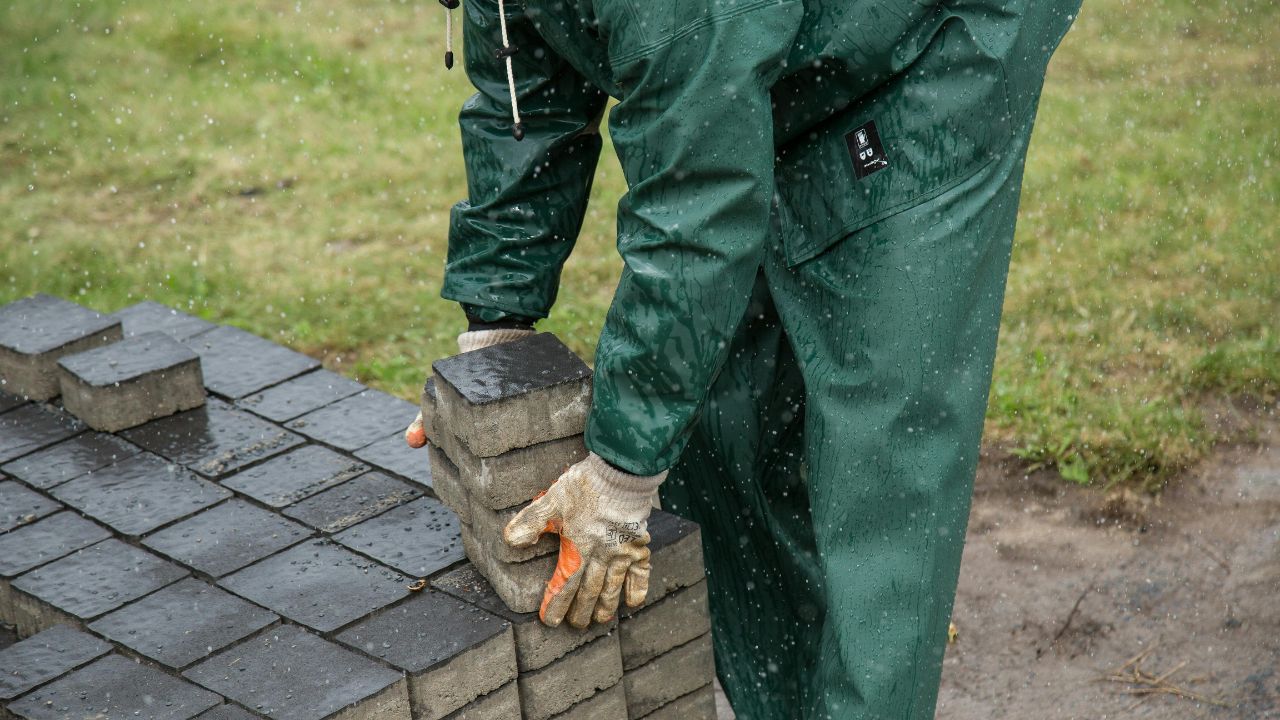When installing pavers for patios, driveways, or walkways, one of the most critical steps is preparing a solid foundation. The paver base — typically made of crushed stone or gravel — provides stability, drainage, and long-term durability to your project.
This Paver Base Calculator helps you quickly estimate the amount of base material you need based on your project area and base depth.
Formula to Calculate Volume of Paver Base
Volume=Area×Depth
Here:
- Area = total surface area of your paver installation (in square meters or square feet)
- Depth = thickness of the paver base layer (in meters or feet)
Convert Volume to Cubic Yards
If your area and depth are in feet, convert the result to cubic yards using this formula:
Volume (cubic yards)=27Area (ft2)×Depth (ft)
Adjust for Compaction
When you compact the base material, it settles and reduces in volume. To ensure you have enough material, use a compaction factor (typically 0.95).
Adjusted Volume=Compaction FactorLoose Volume
For this calculator, we assume a default compaction factor of 0.95, meaning you’ll need about 5% more material to compensate for compaction.
Final Formula (Simplified)
Paver Base Volume (cubic yards)=27×Compaction Factor(Area×Depth)
Example Calculation
Let’s say you’re building a patio that measures 200 square feet, and you plan a base depth of 6 inches (0.5 ft).
Loose Volume=200×0.5=100 cubic feet
Convert to cubic yards:
Loose Volume (yd3)=27100=3.70 cubic yards
Adjust for compaction (factor = 0.95):
Adjusted Volume=0.953.70=3.89 cubic yards
Result: You will need approximately 3.9 cubic yards of paver base material.
🧠 Key Notes
- Always add a 5–10% buffer for irregular shapes or waste.
- For driveways, use a deeper base (8–12 inches).
- For patios or walkways, 4–6 inches is usually sufficient.
FAQs
1. What type of material should I use for the paver base?
Use crushed stone or gravel (like ¾-inch road base or quarry process). Avoid round river stones as they don’t compact well.
2. Can I use sand as a base layer?
Sand is typically used as a top leveling layer, not as the main base. Always have a compacted stone layer underneath.
3. What is a good compaction factor for paver base?
A compaction factor of 0.95 (5% volume reduction) is standard for crushed stone or gravel bases.
4. How deep should a paver base be?
- Walkways/Patios → 4–6 inches
- Driveways → 8–12 inches
5. How much extra material should I order?
Order about 5–10% more to account for compaction and uneven ground.

Check out 2 Similar Calculators: